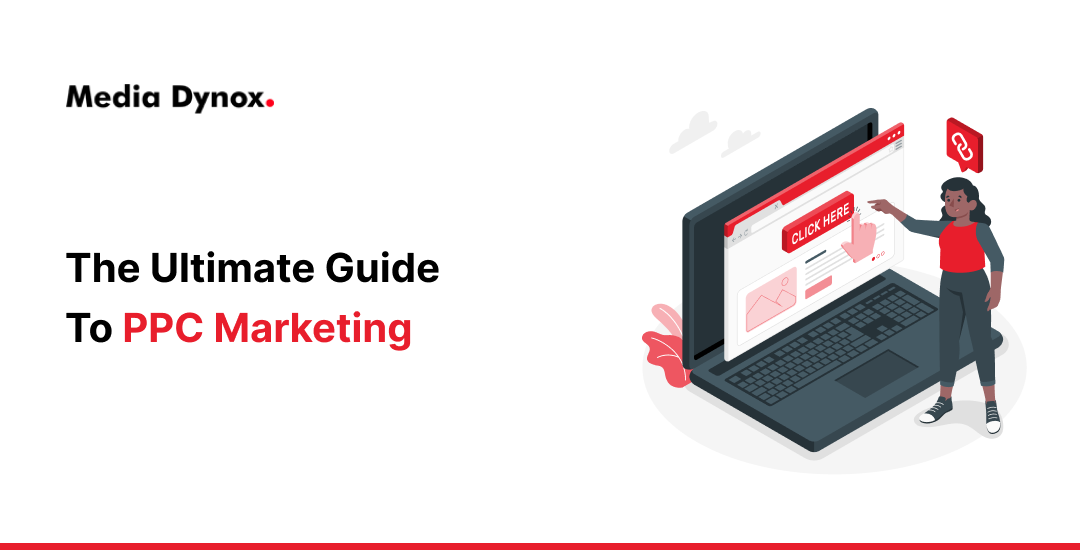
Today, for any organization to be successful among others in the market online presence matters the most; therefore, having an Available presence internet has become one of the numerous determinants behind any sales accrued by companies these days Moreover if you asking about your question concerning for businesses to appear on Google`s front page SEO wise including Pay-Per-Click Advertising (PPC) could entail displaying their adverts on these top three results in no time However, this advertising model uses search engines like Google or Bing which permit ad placements based on keyword searches against organic search engines where sites are ranked according to numerous determinants.
This incredible model of Internet marketing is an essential way of buying visits to your site, rather than attempting to earn those visits organically. The process will advertisers bid on keywords that users of the service like Google and Bing. Find the best digital marketing company in Mumbai to meet high ROI. However, they might enter when looking for certain products or services.
Google Ads: This is one of the most popular PPC platforms. However, it allows you to create ads that appear on Google’s search engine and other platforms.
Social Media Ads: Facebook, Instagram, Twitter, Linkedin, and other social media worldwide platforms. However, they use PPC marketing to rank at the top based on demographics, interests, and behaviors.
Bing Ads: These ads are similar to Google ads Such as Bing Ads (New Microsoft Ads) which are placed on Bing and Yahoo platforms
Keyword Research: An effective PPC campaigns start with comprehensive keyword research. However, tools like Google Keyword Planner, Ahrefs, and SEMrush make a way to identify and manage keywords. As a result, it will help to meet the target audience is searching for. Additionally, need to look for keywords that balance the search volume with relevance to your business.
Ad Creation: Ensure that your ads need to be appealing and relevant to the keywords that you are targeting. However, each ad requires one creative headline and a brief description of services. In addition, a CTA to get more engagement and encourage users to click through the landing page.
Landing Pages: A successful PPC ad would guide visitors to an exclusive page where they can be turned into clients. This particular page needs to be in line with the ad, thus, making the transition flawless and offering the reader unmistakable benefits. Attract your customers with a compelling headline, and understandable illustration, and don’t forget about including a bright CTA.
Budget and Bidding: Determine the amount of money to spend on advertising by first having a clear goal. Additionally, the overall campaign as well as finding out how much each click will be worth depending on which keywords you use. Manual CPC, automated bidding, or enhanced manual CPC are some of the strategies available for use in Google Ads and other ad platforms like Bing Ads. Always select the one that best fits what you want out of this campaign either increasing web traffic, increasing revenue, increasing brand visibility or any other reason you may have for running an ad campaign managing and Optimizing Your PPC Campaign
Monitoring Performance: You must regularly check the performance of your campaign using the analytics tools that are given by your PPC platform. Key metrics to monitor are:
Click-Through Rate (CTR): The ratio of clicks to impressions.
Conversion Rate: The percentage of clicks that result in a desired action (e.g., purchases, sign-ups).
Quality Score: Google's rating of the quality and relevance of your keywords and PPC ads.
Return on Ad Spend (ROAS): Revenue generated for every dollar spent on advertising.
A/B Testing: Try different ad and landing page versions to understand those that perform efficiently. Vary the headlines, ad copies, CTAs as well as the landing page designs. Continuously improve campaign optimization using the knowledge acquired.
Refining Keywords: It is essential to review and update your list of keywords consistently. You should remove keywords that are not performing well while incorporating those that hold some promises in return. Moreover, one should exclude any keywords that may be irrelevant thereby saving money intended for significant clicks.
Bid Adjustments: Base your bids on the outcome information; Increase bids on the high-performing keywords. It will decrease or pause them on those keywords that are not performing well. Make good use of automated rules or bid management tools to bid strategically.
Remarketing: Individuals who have interacted with your site without buying anything are the target audience for remarketing. Thus, as they surf other websites, they see personalized ads. However, make them want to pay your website another visit where they would finish making a purchase.
Geo-Targeting: If you want to concentrate your fliers on certain areas, geo-targeting can make it happen. Entities that operate within defined geographical locations particularly benefit from this, as it increases the likelihood of the most interested people viewing their ads.
Ad Extensions: You use ad extensions to provide extra data into your ad, for example, site links, call buttons, or location details, making them more noticeable and hence increasing the click-through rate (CTR).
PPC marketing provides a dynamic and efficient method of channeling traffic and sales to your business. A complete mastery of the basics, setting up well-researched campaigns, tweaking and optimizing efforts keeping track all the time will help you utilize all possibilities that PPC advertising offers. Stay flexible and knowledgeable about the new trends and tools used in PPC so that you can remain competitive and accomplish your marketing goals.